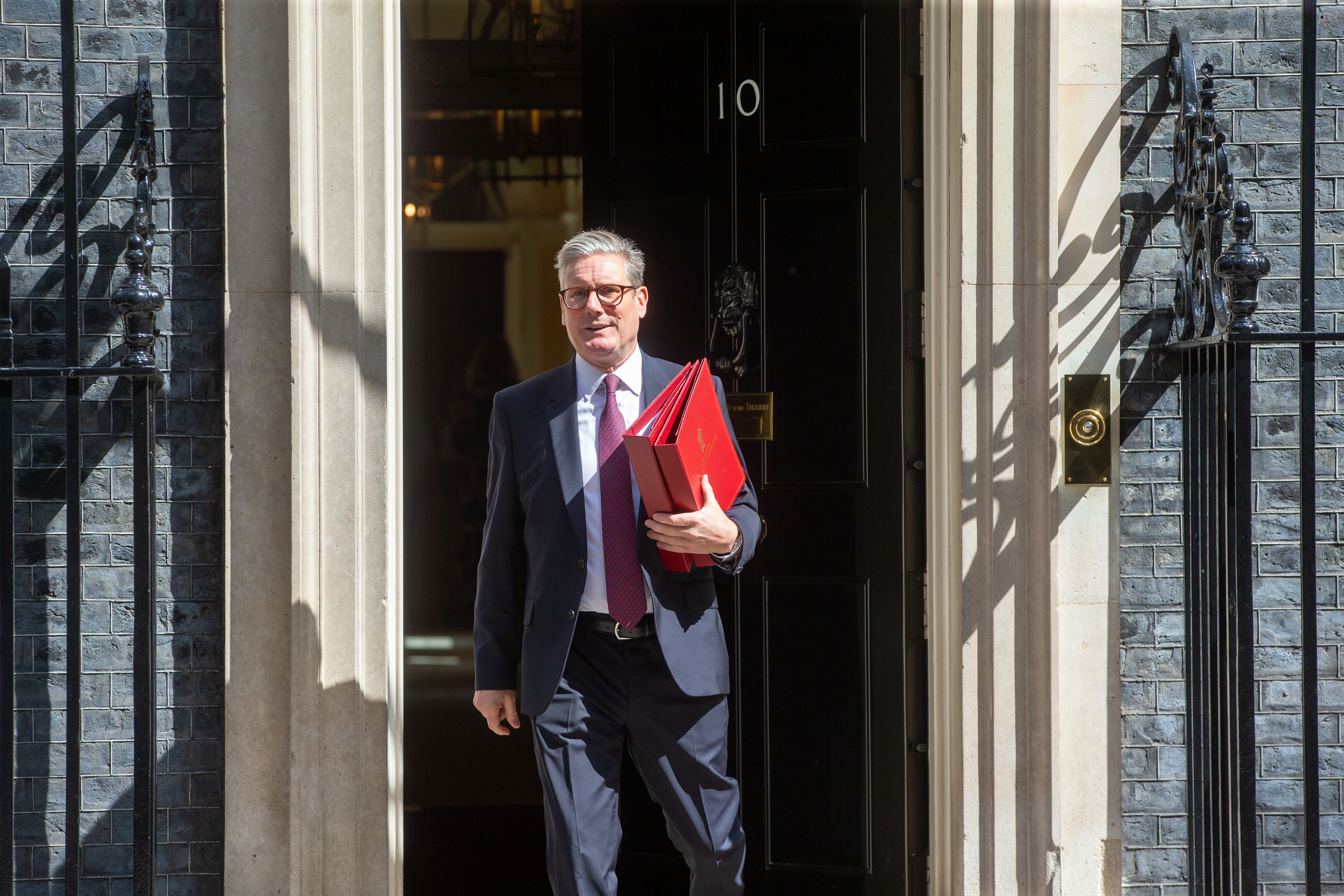What can Keir Starmer achieve in his meeting with European leaders?
The new prime minister wants a reset with Europe, but Sean O’Grady looks at what can be done to improve post-Brexit relations


Another week, another huge international summit. After winning the general election, flying to Washington for the Nato summit and leading the debate on the King’s Speech, Keir Starmer welcomes the prime minister of Ireland to Chequers and 45 European leaders to the European Political Community (EPC) meeting at Blenheim Palace. Representatives from Nato, the Organisation for Security and Cooperation in Europe and the Council of Europe will also be in attendance.
As the birthplace of Winston Churchill and an MI5 base during the last war, Blenheim Palace has plenty of appropriate historic reminders of a shared European history. The formal agenda will cover irregular migration, disinformation, and the lack of energy security as well as Ukraine.
The government says 800 scones will be served for afternoon tea – about two per delegate.
What does Keir Starmer want?
He wants a “reset” in relations between the UK and the European Union. That means rebuilding the bridges of trust, and projecting a more rational and open policy than was the case in the frosty post-referendum period and with the often combative behaviour of Boris Johnson and Liz Truss. Rishi Sunak worked hard to repair that damage, but there’s more to do. As the prime minister saw it at the end of the Nato summit: “There was a sense after Brexit that the UK has become too inward-looking, was not as interested as it once was in its place on the global stage. The UK is confident, is back.”
Anything in particular?
Some small things, and one enormous one. Again, the manifesto reflects current aims well. Britain would like to “tear down unnecessary barriers to trade”, it says, and to “negotiate a veterinary agreement to prevent unnecessary border checks and help tackle the cost of food … help our touring artists … and secure a mutual recognition agreement for professional qualifications to help open up markets for UK service exporters”. Such procedural changes would be especially helpful in reducing political as well as trade frictions across the Irish Sea.
Far more ambitious than any of those is the plan for a new UK-EU security pact, and increased defence and security cooperation, which is not a major part of the EU’s mission even now. Much of the focus at Blenheim will be on the war in Ukraine and maintaining continuing pan-European support for Volodymyr Zelensky. Labour says it will also seek new bilateral agreements and closer working with Joint Expeditionary Force partners (the Baltic republics plus the Nordic states and the Netherlands). This is all designed to be complementary to Nato, and has the enthusiastic support of Emmanuel Macron. The prospect of a second Trump term, and the weakening of the previously unconditional American security guarantee, has concentrated minds in every European capital.
What doesn’t Starmer want?
More accurately, what would Starmer quite like to do but cannot because of clear manifesto commitments and nervousness about public opinion? In the much-repeated words of the Labour manifesto: “There will be no return to the single market, the customs union, or freedom of movement.” Indeed, in a parallel world, even if Labour did want to rejoin any or all EU institutions, it’s not entirely clear what the attitude of the EU would be. One idea would be to revive the proposed EU youth mobility agreement; this would allow young people to more easily work and study in both the UK and the EU. The European Commission put it forward in April but Sunak’s government rejected it in favour of individual bilateral agreements with EU members.
Is the EPC a useful tool for bringing the UK closer to the EU?
It is a talking shop, with no secretariat or decision-making powers. It was invented by President Macron in the post-Brexit, post-Ukraine invasion crisis period as a way of drawing in those nations unable or unwilling to engage with the EU and uniting them against Russian aggression. As a very large body with no clear aims, it is prone to platitudes and the “lowest common denominator” in any declarations it makes. As well as the UK and the EU members, it encompasses nations as diverse as Switzerland, Moldova, Iceland, San Marino and Armenia.
However, the policies of the United States under a Trump-Vance administration could force the disparate European states to pool sovereignty and build up their mutual security in the face of the Russian threat. Ironically, it’s a task that would benefit greatly from British leadership.
As for the EU itself, the Brexit deal – the 2021 trade and cooperation agreement – is up for a technical revision next year; Labour’s desired improvements can only be discussed with the commission. At the moment, Starmer has the advantage of leading a stable government with a fresh mandate and with the hard right relatively at bay – in stark contrast to Macron in France and Olaf Scholz in Germany – but as a “third country” Britain’s contribution will be mostly confined to security, rather than economics or politics.



Join our commenting forum
Join thought-provoking conversations, follow other Independent readers and see their replies
Comments